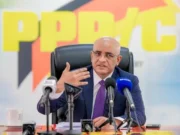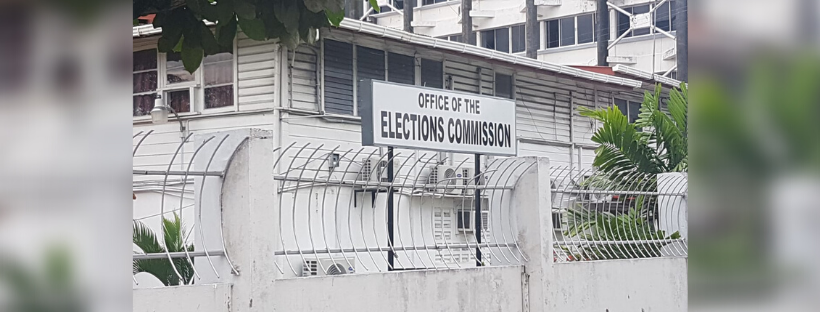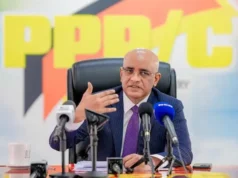By Joel Bhagwandin, MSc.
Summary
The United Nations was created in the post-WWII era to ensure world peace through negotiations rather than violence. The governance structure of the UN is comprised of six organs design to enable it to carry out its mandate effectively. These include: (1) the General Assembly, (2) the Security Council, (3) the Economic and Social Council, (4) the Trusteeship Council and the Secretariat (based at the UN Headquarters in New York), and (6) the International Court of Justice. In view of the fact that the Bolivarian Republic of Venezuela is a founding member of the UN, which means that Venezuela is a signatory to the UN’s Charter―and given the mandate of the UN, which it executes through the six organs; it is clearly established that the ICJ is the competent agency with the jurisdictional authority to settle the border matter. Therefore, Maduro’s non-recognition of the ICJ is egregiously unmeritorious.
Introduction
On October 30, 2023, Guyana filed a request with the International Court of Justice (ICJ) for the indication of provisional measures in respect of the referendum that the Venezuelan Government will be conducting today (December 3, 2023). On December 1, 2023, the ICJ handed down its [unanimous] ruling in this regard, which are stated as follows:
i) Pending the final decision in the case, the Bolivarian Republic of Venezuela shall refrain from taking any action which would modify the situation that currently prevails in the territory in dispute, whereby the Co-operative Republic of Guyana administers and exercises control over that area; [and]
ii) Both parties shall refrain from any action which might aggravate or extend the dispute before the Court or make it more difficult to resolve.
Discussion
Following the ICJ’s ruling on December 1, 2023, Venezuela reaffirmed its non-recognition of the ICJ’s jurisdiction over the border controversy between the two countries (Guyana and Venezuela). This is a position Venezuela held consistently since the matter was referred to the ICJ by the United Nations, after nearly thirty years of exhausting the United Nation’s “Good Offices” process. Yet, Venezuela subsequently joined the case at the ICJ by virtue of their submissions and full participation in the process. As such, a number of legal luminaries described this move on the part of Venezuela as an effective recognition of the ICJ’s jurisdiction, nonetheless.
Moreover, Venezuela’s non-recognition of the ICJ’s jurisdiction is woefully unmeritorious on multiple fronts, and absurd to say the least. To substantiate this view, one has to have an appreciation the world order that was created post WWII. In this regard, three key institutions were created, namely, the International Bank of Reconstruction and Development (IBRD) [that now forms part of the World Bank Group], the International Monetary Fund (IMF) and the United Nations (UN). The mandate of the World Bank was to (and continues to provide development financing) provide financing to assist with the rebuilding and reconstruction of economies that were destroyed in the aftermath of the war. The mandate of the IMF, on the other hand, was to (and continues to) provide short term financing aimed at stabilizing countries’ balance of payments and exchange rates. The United States led the creation and design of this new post-war world order, inter alia, these institutions―and more importantly, it has managed to cleverly maintain a great degree of influence over these institutions by design.
History of the United Nations
As World War II (WWII) was about to end in 1945, nations and the world wanted world peace. Consequently, “representatives of 50 countries gathered at the United Nations Conference on International Organization in San Francisco, California from April 25 to June 26, 1945, where they proceeded to draft and then sign the UN Charter, which created a new international organization, the United Nations, which it was hoped, would prevent another world war like the one they had just lived through” (United Nations History).
Interestingly to note, the Bolivarian Republic of Venezuela is one of the 50 founding (original) members of the United Nations in 1945. World War II ended in September 2, 1945, the 50 founding members of the UN began signing the UN Charter in October 1945, and Venezuela joined in November 1945; whereas Guyana became a member of the United Nations two-decades later in September 1966, after it gained independence in May of that year.
Governance Structure of the United Nations
Essentially, the United Nations was created in the post-war era to ensure world peace through negotiations rather than violence. The governance structure of the UN is comprised of six organs design to enable it to carry out its mandate effectively. These include: (1) the General Assembly, (2) the Security Council, (3) the Economic and Social Council, (4) the Trusteeship Council and the Secretariat (based at the UN Headquarters in New York), and (6) the International Court of Justice, located at the Hague in the Netherlands.
Of note, in the case of the border controversy between the countries (Guyana and Venezuela), three of the six above stated organs come into effect, whose functions are summarized hereunder:
a) The General Assembly is the main deliberative organ of the United Nations. It is composed of representatives from all (193) Member States, each of which has one vote.
b) The Security Council has primary responsibility for the maintenance of international peace and security. Under the Charter, all Member States are obligated to comply with Council decisions. In some cases, the Security Council can resort to imposing sanctions or even authorize the use of force to maintain or restore international peace and security.
c) The International Court of Justice is the principal organ of the United Nations. The Court is charged with settling legal disputes between States and giving advisory opinions to the United Nations and its specialized agencies.
Mitigating Venezuela’s threat to Regional Peace and Security, Implications
The Security Council of the United Nations is composed of 15 members, five permanent members and 10 non-permanent members, elected for two-year terms by the General Assembly. The United States, United Kingdom, France, China, and the Russian Federation are the five permanent members, and the non-permanent members include Brazil.
In the context of the border controversy with Venezuela, Brazil has reportedly increased its military presence in Northern Brazil closer to its border with Venezuela. This was preceded by high level collaborative engagements between the Brazilian authorities and Guyana. The same occurred with other allies, including the United States, recently.
Henceforth, there is no reason to doubt whether Guyana will receive the appropriate support from its allies, particularly the United States and Brazil, in the event of an invasion of any kind. There is also no reason to doubt whether the Security Council of the United Nations would invoke/authorize the use of sanctions and/or force to ensure that peace and security is maintained in this region.
Conclusion
In view of the fact that the Bolivarian Republic of Venezuela is a founding member of the UN, which means that Venezuela is a signatory to the UN’s Charter―and given the mandate of the UN, which it executes through the six organs; it is clearly established that the ICJ is the competent agency with the jurisdictional authority to settle the border matter. Therefore, Maduro’s non-recognition of the ICJ is egregiously unmeritorious.













